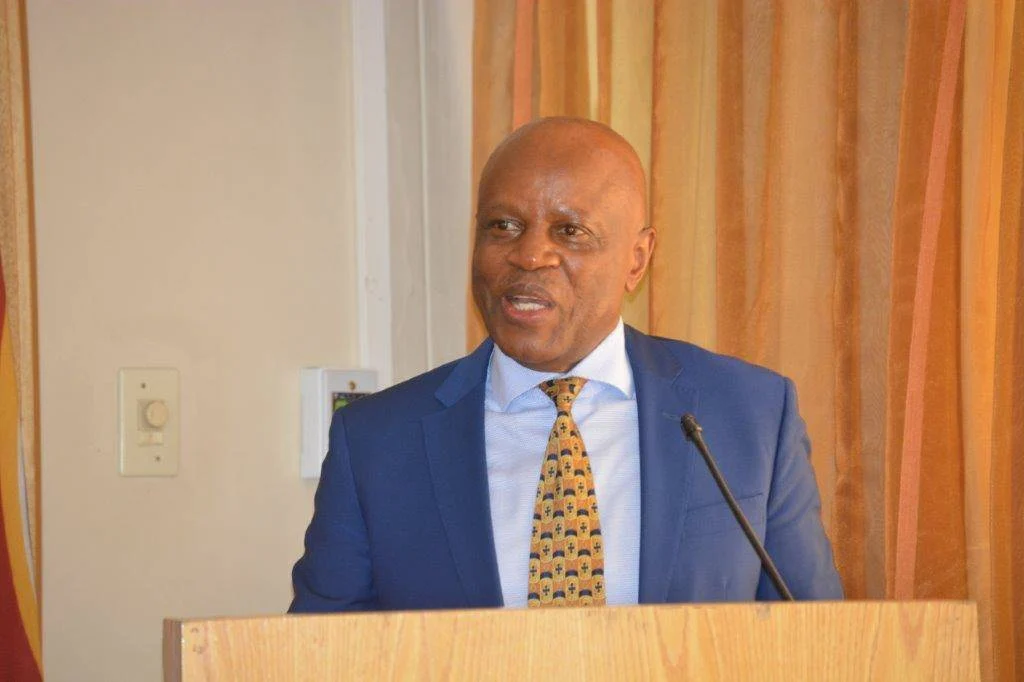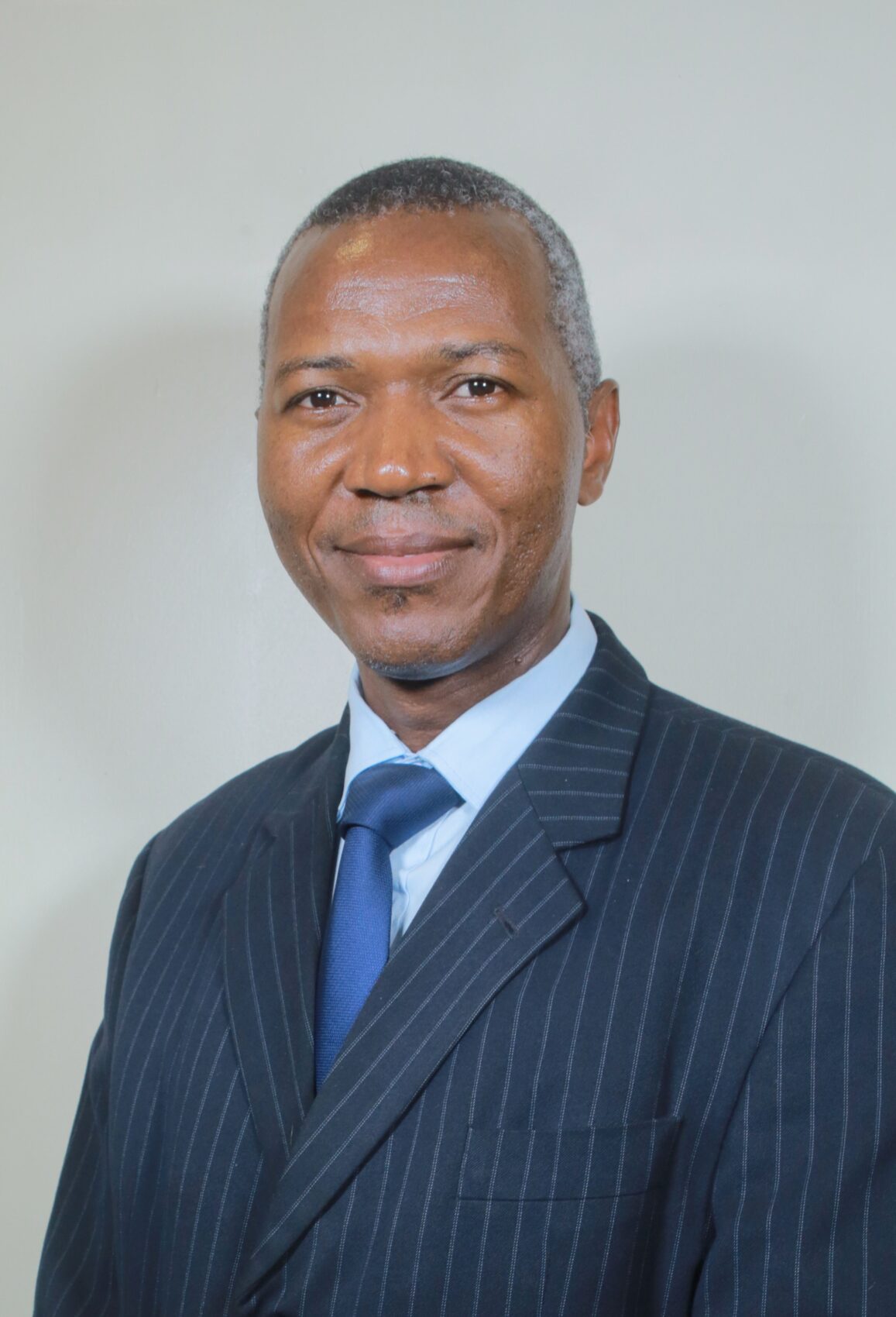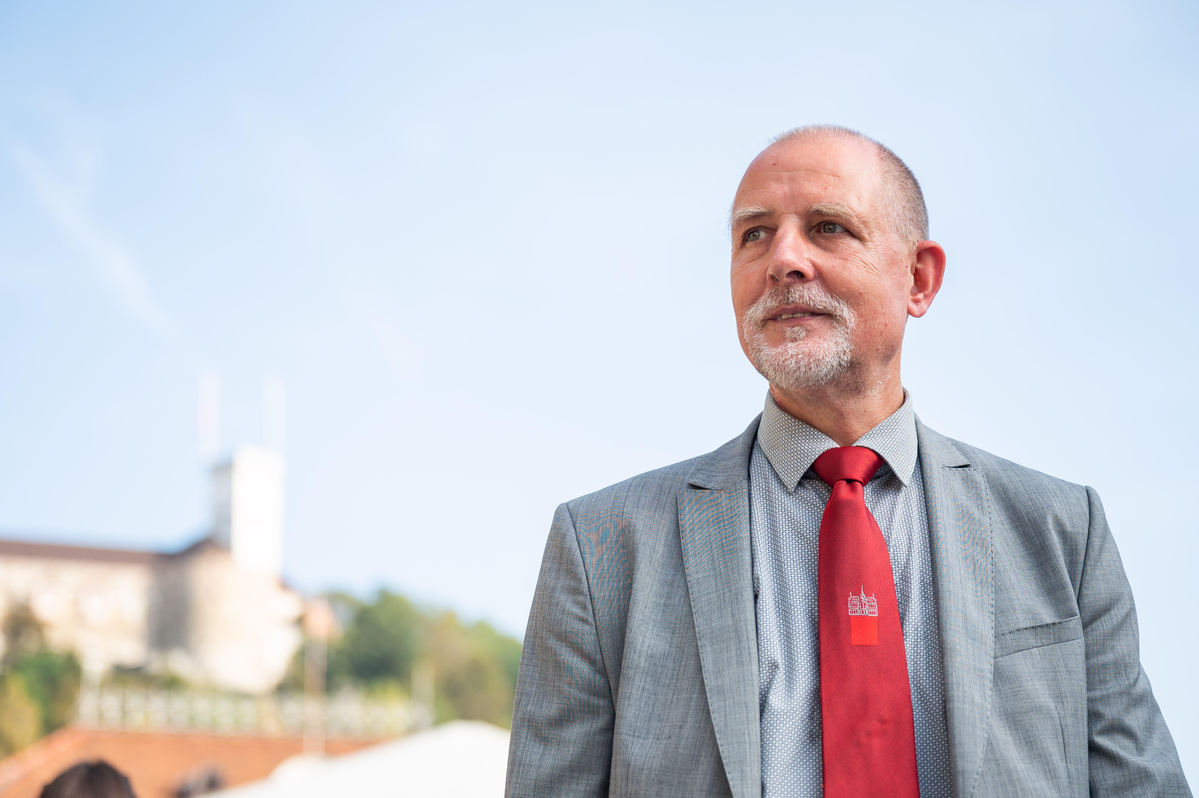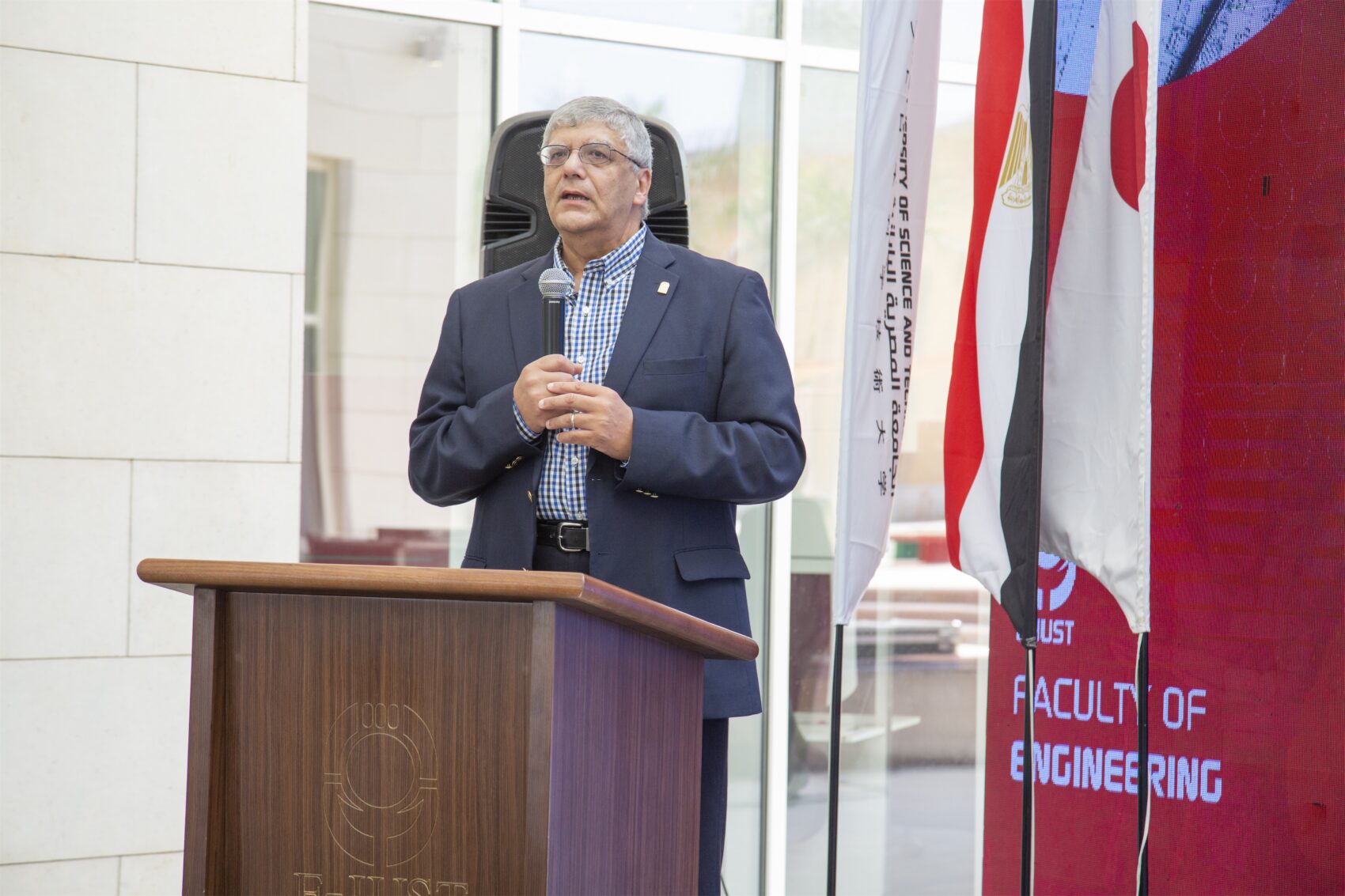Continuing our series of interviews with African science and technology leaders, AfricaLive and Innovation Report speak with Dr. Amos Nungu, Director General of the Tanzania Commission for Science and Technology (COSTECH). This interview explores COSTECH’s pivotal role in driving Tanzania’s scientific and technological advancement, highlighting key research projects and initiatives that address critical national and regional challenges.
Dr. Nungu shares insights on flagship projects such as vaccine development for swine fever, applications of nanotechnology in herbal medicine, and climate change adaptation efforts. He also discusses COSTECH’s commitment to nurturing Tanzania’s youth population, preparing them for the Fourth Industrial Revolution through innovation hubs, educational initiatives, and collaborations that bridge academia and industry.
With a confident outlook on Tanzania’s future in science and technology, Dr. Nungu outlines the country’s potential for international partnerships and its growing innovation ecosystem, inviting global stakeholders to explore opportunities within Tanzania’s research landscape.
“My vision as the Director General of the Commission is “to lead a transformative journey where our nation thrives on the pillars of Science, Technology, and Innovation, fostering a future of sustainable growth, global competitiveness, and unparalleled advancements.”
Key Points:
- COSTECH advises the Tanzanian government on research and technology, coordinates innovation, and regional science collaborations endeavours.
- COSTECH is the principal advisory organ to the Tanzanian government responsible for matters related to scientific research and technological development, focusing on research promotion and coordination, technology transfer, and commercialization.
- The COMMISSION fosters a conducive environment for research, innovation, and technology transfer in Tanzania through frameworks and academia-industry collaboration initiatives.
- COSTECH has made significant impacts in the agriculture and livestock sectors, supporting research on high-yield palm oil varieties, livestock feed, and vaccine development to address food security and industrialization challenges.
- The commission is actively participating in various collaborations, such as the Global Research Council (GRC) and the Science Granting Council Initiative (SGCI), to advance science, technology, and innovation goals across the continent.
AfricaLive: What would you consider some of the key achievements and lessons learned from your work at COSTECH in recent years?
Dr. Amos Nungu: Under the government of Tanzania, COSTECH has made substantial contributions to advancing science, technology, and innovation, supported by impactful initiatives. The key achievements are highlighted on:
Advancement in Agricultural Productivity: COSTECH supported research that led to the development of improved maize varieties, integrated pest management strategies, contributing to enhanced yields and resilience to local conditions.
Healthcare Innovations: Collaborative research facilitated by COSTECH with international partners resulted in the development of diagnostic tools for diseases like malaria, improving early detection and treatment outcomes. It has also supported livestock vaccines.
Environmental Conservation: COSTECH funded projects in renewable energy, such as solar power systems for rural communities, promoting sustainable energy solutions and reducing environmental impact. The ecology friendly pest management control has been supported and promoted by COSTECH.
Education and Skills Development: COSTECH’s scholarship programs have empowered Tanzanian students and researchers in STEM fields, enhancing their skills and fostering innovation.
Technology Transfer and Industry Collaboration: COSTECH initiatives have supported the transfer of technology from research institutions to industries, fostering the growth of startups and enterprises in sectors like biotechnology and ICT.
Policy Influence and Governance: COSTECH’s advisory role has influenced policy formulation in science and technology, creating a conducive environment for research and development activities.
Infrastructure Development: Investments in research infrastructure by COSTECH have equipped Tanzanian researchers with state-of-the-art laboratories and facilities, enabling them to conduct high-impact research
International Collaboration: Partnerships forged by COSTECH with global organizations and universities have facilitated knowledge exchange and joint research initiatives tackling global challenges.
Contribution to the Innovation Ecosystem: COSTECH has played a crucial role in nurturing Tanzania’s innovation ecosystem by fostering collaboration between academia, industry, and government. Initiatives promoting technology transfer, entrepreneurship, and commercialization of research outcomes have catalyzed economic diversification and job creation in emerging sectors. For example, collaborations with local startups and incubators have supported the development and scaling of innovative solutions addressing societal challenges.
The Commission has played a pivotal role in driving socio-economic development through Science, Technology, and Innovation (STI). Its approach offers valuable lessons for fostering innovation ecosystems in diverse sectors.
One of the primary lessons from COSTECH’s experience is the power of strategic collaboration. Over the years, COSTECH has actively cultivated partnerships with international organizations, universities, industry leaders, and government entities. These collaborations have proven crucial in pooling resources, sharing expertise, and expanding networks. By harnessing collective strengths, COSTECH has accelerated the pace of innovation and the development of impactful solutions to address Tanzania’s developmental challenges.
Another critical lesson revolves around the importance of supportive policies and regulatory frameworks. COSTECH has championed policies that create an enabling environment for STI. These include incentives for research and development, protections for intellectual property rights, and mechanisms to facilitate technology transfer and commercialization. Such frameworks are essential in nurturing an ecosystem where innovators feel supported and encouraged to bring their ideas to fruition, attracting investment and fostering entrepreneurship.
Moreover, COSTECH has demonstrated a clear focus on sustainable development goals. By prioritizing initiatives in renewable energy, healthcare innovation, environmental conservation, and agriculture, COSTECH has aligned STI efforts with Tanzania’s national development priorities. This strategic alignment ensures that STI initiatives not only contribute to immediate socio-economic benefits but also lay the groundwork for long-term sustainability and improved quality of life for Tanzanians.
AfricaLive: Are there any other flagship projects or projects underway that you consider important to communicate?
Dr. Amos Nungu: Yes, there are several flagship projects and initiatives currently underway at COSTECH that highlight our commitment to advancing science, technology, and innovation in Tanzania.
One Health Program – Vaccine Development for Swine Fever
– This collaborative project, supported by the Oliver Tambo Research Foundation and involving over seven African countries, focuses on developing a vaccine for swine fever under the One Health program.
– The infrastructure established for this project has also been instrumental in testing for COVID-19 and other emerging diseases, showcasing its vital role in public health.
Nanotechnology for Herbal Medicine
– This collaborative project, also supported by the Oliver Tambo Research Foundation and involves over seven African countries, exploring nanotechnology applications in herbal medicine.
– This initiative aims to enhance the efficacy and delivery mechanisms of traditional herbal remedies, merging traditional knowledge with modern scientific advancements.
Climate Change Adaptation
– In partnership with NORAD and SIDA, COSTECH is leading a climate change adaptation project.
– This project promotes multidisciplinary approaches and emphasizes the inclusion of youth in tackling climate challenges, preparing them to contribute to the Fourth Industrial Revolution, particularly in areas like AI and beyond.
Mobile Diagnostic Tools for Soil Health
– One of our projects focuses on developing mobile diagnostic tools for assessing soil health. This technology aims to empower farmers with real-time data to improve agricultural productivity sustainably.
These projects exemplify COSTECH’s collaborative approach to addressing critical challenges through innovative solutions. They underscore our dedication to fostering sustainable development and preparing Tanzania for future technological advancements.
AfricaLive: What role do you see for COSTECH to participate in increased regional collaboration and African collaboration?
Dr. Amos Nungu: We are actively participating in various regional and international collaborations. For example, we are part of the Science Granting Council Initiative (SGCI), which consists of about 16 countries in Sub-Saharan Africa. In the Oliver Tambo Research Chair Initiative, where 10 research chairs were competed for by 16 countries, Tanzania managed to secure two projects (reported above) out of the 10, demonstrating our strength.
Three years ago, there was a call for collaboration through the Global Research Council, where four African countries – Tanzania, Kenya, South Africa, and Ivory Coast came together to contribute to financing research instead of always being on the receiving end. Our researchers participated in this capacity-building process and idea creation, contributing to addressing challenges prevalent in Africa. Tanzania is participating in four projects with partners from Europe, South America, Asia, and Sub-Saharan African countries. The idea was to have at least three continents come together to form one project. These collaborations show that we are integral partners in the research system, and we try to be at the table to be counted.
AfricaLive: Tanzania has a very large and growing youth population. How can you work to ensure that Tanzania’s youth population is able to work with technology and be part of the Fourth Industrial Revolution rather than being excluded from the global technological movement?
Dr. Amos Nungu: We are actively engaging Tanzania’s youth through a variety of programs, with innovation hubs playing a pivotal role as training grounds where youth can develop their skills and ideas. Education is a cornerstone of our approach because it empowers youth to realise that support for their ideas extends beyond financial assistance. Through educational initiatives, we equip them with the knowledge and resources needed to navigate and thrive in the innovation ecosystem.
Our flagship event, the National Innovation Week, serves as a platform to showcase and nurture innovative ideas. This year, we received approximately 300 proposals which are currently undergoing rigorous screening. These initiatives provide vital platforms for youth participation and advancement.
In 2023, we supported a significant AI research initiative, where youth researchers played a central role. This project exemplifies our commitment to bridging academia with industry, fostering collaboration on 7 projects where AI expertise from industry partners complemented academic research.
In the climate change adaptation project, emphasized multidisciplinary teamwork and youth inclusion. These efforts are not just about integrating youth into sectors like AI; they are about preparing them to lead in Tanzania’s broader Fourth Industrial Revolution journey.
Moving forward, we are dedicated to continuously engaging and empowering youth. By providing opportunities, mentorship, and supportive environments, we aim to ensure that Tanzania’s youth are not only participants but also drivers of innovation and sustainable development.
AfricaLive: How confident are you in the future of Tanzania, and can you give us a score between 0 and 10?
Dr. Amos Nungu: Looking at the opportunities, I would put the score above seven because there are other factors to consider. Our ministry is reviewing the STI policy because the conducive environment is key, and some partners have mentioned that our policies are not conducive enough or up to date. The new policy will be a plus.
The government has also revisited the education policy, which is now 6.4.4. In the revised policy, there is a general track for education and a technical track. STI or STEM is now embedded from primary school, which is a positive thing because it means building the foundation from the beginning. When students come to colleges or universities, they will have a solid ground for the technical aspect, preparing them for the Fourth Industrial Revolution, where technology is integral to everything.
These upcoming youngsters who are already acclimated to technology will also be the policymakers, so I think the decision to support more science and STI, in general, will get bigger support from the policymakers.
AfricaLive: Do you have any message for potential international partners or an international audience that may be looking at Tanzania now?
Dr. Amos Nungu: My message to potential international partners is that Tanzania offers a highly conducive environment for both research and innovation. At COSTECH, we have established strong partnerships with organizations like SIDA, NORAD, IDRC, DFID, Science Councils, UNESCO, and WFP, who have recognized and appreciated our collaborative efforts. We have robust systems in place to support a wide range of research and innovation endeavors. Also, we work closely with regional and international bodies like EASTECO, ICGEB, EDCTP and WIPO.
In terms of innovation, we have made significant strides in the past three years. Initially, there was a scarcity of innovators and viable products attracting investors. However, thanks to our dedicated efforts, we now have a growing number of innovators and an expanded ecosystem.
We are fully prepared to support investors and partners interested in Tanzania. Whether you are looking to work with specific research institutions or universities, or focus on particular thematic areas, COSTECH serves as the gateway to connect you with the right partners and opportunities. We are flexible and can accommodate partnerships that align with specific interests, as long as it supports our national research agenda.
COSTECH has undergone significant transformation to become more international in its outlook and operations. We are committed to continuous improvement and invite all stakeholders interested in leveraging our expertise and ecosystem to collaborate with us. Our doors are open, and we welcome everyone who wishes to explore opportunities with COSTECH.
Together, let’s harness the potential of Tanzania’s research and innovation landscape to achieve meaningful impact on a global scale. We look forward to fruitful collaborations and discussions with international partners.
Continuing our series of interviews with African science and technology leaders, AfricaLive and Innovation Report speak with Dr. Amos Nungu, Director General of the Tanzania Commission for Science and Technology (COSTECH). This interview explores COSTECH’s pivotal role in driving Tanzania’s scientific and technological advancement, highlighting key research projects and initiatives that address critical national and regional challenges.
Dr. Nungu shares insights on flagship projects such as vaccine development for swine fever, applications of nanotechnology in herbal medicine, and climate change adaptation efforts. He also discusses COSTECH’s commitment to nurturing Tanzania’s youth population, preparing them for the Fourth Industrial Revolution through innovation hubs, educational initiatives, and collaborations that bridge academia and industry.
With a confident outlook on Tanzania’s future in science and technology, Dr. Nungu outlines the country’s potential for international partnerships and its growing innovation ecosystem, inviting global stakeholders to explore opportunities within Tanzania’s research landscape.
“My vision as the Director General of the Commission is “to lead a transformative journey where our nation thrives on the pillars of Science, Technology, and Innovation, fostering a future of sustainable growth, global competitiveness, and unparalleled advancements.”
Key Points:
- COSTECH advises the Tanzanian government on research and technology, coordinates innovation, and regional science collaborations endeavours.
- COSTECH is the principal advisory organ to the Tanzanian government responsible for matters related to scientific research and technological development, focusing on research promotion and coordination, technology transfer, and commercialization.
- The COMMISSION fosters a conducive environment for research, innovation, and technology transfer in Tanzania through frameworks and academia-industry collaboration initiatives.
- COSTECH has made significant impacts in the agriculture and livestock sectors, supporting research on high-yield palm oil varieties, livestock feed, and vaccine development to address food security and industrialization challenges.
- The commission is actively participating in various collaborations, such as the Global Research Council (GRC) and the Science Granting Council Initiative (SGCI), to advance science, technology, and innovation goals across the continent.




